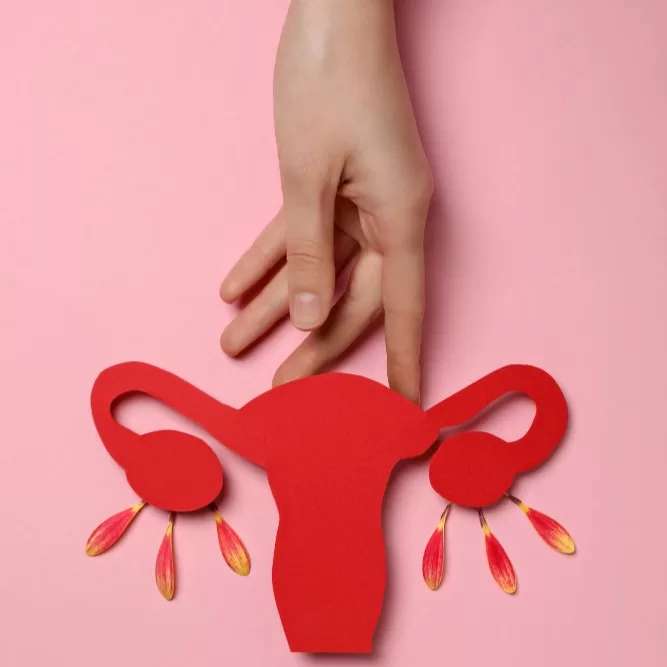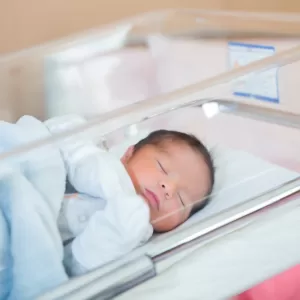Fibroids, also known as uterine fibroids are non-cancerous growths that develop in or on the uterus. While fibroids are generally benign and often go unnoticed, they can sometimes lead to health issues, particularly when it comes to fertility. Women who are trying to conceive may wonder: Can fibroids cause infertility? This blog delves into how fibroids can affect fertility, the types of fibroids that may pose risks, and treatment options available for women who want to conceive.
What Are Uterine Fibroids?
Uterine fibroids are growths made up of muscle and fibrous tissue. They can vary in size, from as small as a pea to as large as a melon. Depending on their size and location, fibroids can be asymptomatic or cause symptoms such as heavy menstrual bleeding, pelvic pain, and pressure on the bladder or bowel.
Fibroids are classified based on their location in the uterus:
- Subserosal Fibroids: These grow on the outer wall of the uterus and are less likely to interfere with fertility.
- Intramural Fibroids: These grow within the muscular wall of the uterus and can sometimes impact fertility or pregnancy.
- Submucosal Fibroids: These grow inside the uterine cavity and can have the most significant impact on fertility.
How Fibroids Can Affect Fertility
Not all fibroids interfere with fertility, but some can. Here are the ways in which fibroids may impact a woman’s ability to conceive:
- Obstruction of the Fallopian Tubes: Large fibroids can block the fallopian tubes, preventing the egg from reaching the uterus or blocking the sperm from reaching the egg.
- Alteration of the Uterine Cavity: Fibroids, especially submucosal ones, can distort the shape of the uterine cavity, making it difficult for an embryo to implant properly. This can result in implantation failure or early miscarriage.
- Interference with Blood Flow: Fibroids can reduce the blood flow to the uterine lining, affecting the ability of the embryo to implant and grow.
- Cervical Blockage: If fibroids grow near the cervix, they can block the passage of sperm into the uterus, thus affecting conception.
- Hormonal Imbalances: In some cases, fibroids may affect hormonal balance, disrupting the normal functioning of the reproductive system.
Can Fibroids Prevent Pregnancy?
While fibroids can sometimes make it difficult to conceive, they do not always prevent pregnancy. Many women with fibroids go on to have healthy pregnancies. The likelihood of fibroids causing infertility depends on several factors, such as the size, location, and number of fibroids. Submucosal fibroids, which grow inside the uterine cavity, are the most likely to interfere with conception and pregnancy.
If a woman with fibroids experiences difficulties in getting pregnant, it is important to consult a fertility specialist. A thorough evaluation, including ultrasound or MRI scans, can help determine whether fibroids are contributing to infertility.
Fibroids and Pregnancy Complications
Even if a woman with fibroids becomes pregnant, she may face certain complications, including:
- Preterm Birth: Fibroids can increase the risk of premature labor.
- Placental Problems: Fibroids can lead to placental abruption, where the placenta detaches from the uterus before childbirth.
- Fetal Growth Restrictions: Large fibroids can limit space in the uterus, affecting fetal growth.
- Cesarean Section: Women with large fibroids may have a higher chance of requiring a C-section due to the position of the fibroids.
Treatment Options for Fibroids and Infertility
If fibroids are identified as a cause of infertility, there are several treatment options available:
- Medications: Hormonal treatments, such as birth control pills or GnRH agonists, may help reduce the size of fibroids, but they are not a permanent solution. These medications are typically used to manage symptoms rather than for long-term fibroid shrinkage.
- Surgical Treatment (Myomectomy): For women who wish to conceive, a myomectomy is often recommended. This surgical procedure removes fibroids while preserving the uterus. It is particularly effective for women with submucosal or intramural fibroids that interfere with the uterine cavity.
- Uterine Fibroid Embolization (UFE): This minimally invasive procedure cuts off the blood supply to the fibroids, causing them to shrink. However, UFE is generally not recommended for women who want to become pregnant, as it may affect fertility.
- Assisted Reproductive Technology (ART): If fibroids are removed but a woman still struggles to conceive, ART treatments like In Vitro Fertilization (IVF) can be an option. IVF bypasses many of the physical barriers caused by fibroids, allowing for successful fertilization and implantation.
When to Seek Help
If you are trying to conceive and suspect that fibroids may be affecting your fertility, it is important to seek professional guidance. A gynecologist or fertility specialist can provide an accurate diagnosis and recommend appropriate treatments to enhance your chances of conception.
Currae Hospital, known as the Best Women & Child Hospital in Thane & Navi Mumbai, offers comprehensive care for women dealing with fibroids and fertility issues. Our experienced team provides personalized treatment plans tailored to each patient’s unique needs, helping you achieve the best possible outcome on your journey to parenthood.
Conclusion
While fibroids can sometimes cause infertility or pregnancy complications, they do not always prevent women from conceiving. With the right diagnosis and treatment, many women with fibroids go on to have successful pregnancies. If you are struggling with fertility and suspect fibroids may be playing a role, it’s important to consult a specialist who can guide you through the best treatment options.





